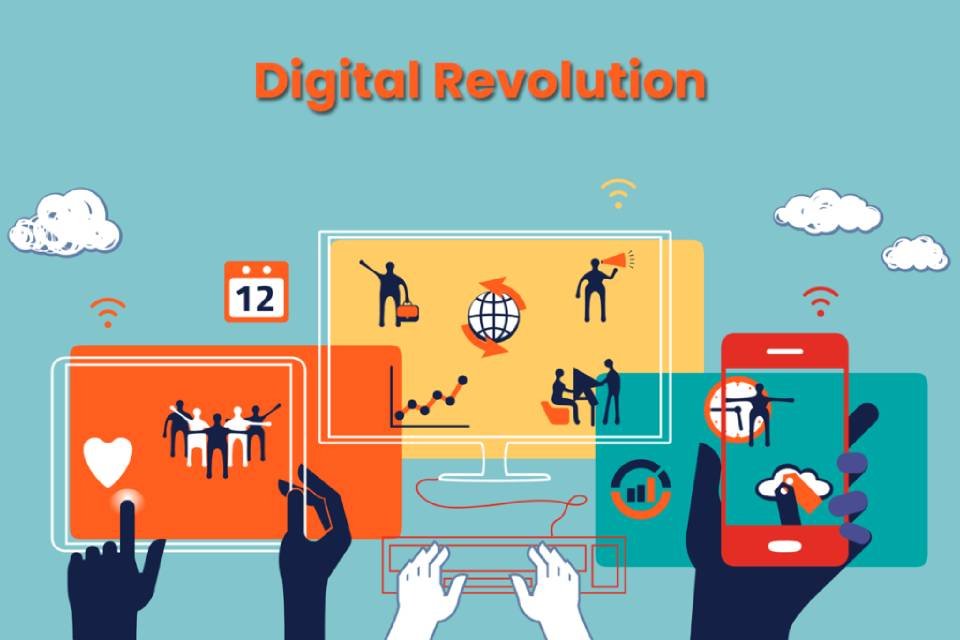Introduction:
In today’s fast-paced world, technology is not just a tool. The integration of technology has revolutionized how companies operate, communicate, and innovate. From streamlining processes to reaching wider markets, the impact of technology on businesses is profound and far-reaching. Let’s delve into some key aspects of this transformative relationship. In an era characterized by unprecedented technological advancement, the landscape of business has undergone a profound transformation. The Impact of Technology on Business: Navigating the Digital Revolution From traditional brick-and-mortar establishments to digital-first enterprises. The integration of technology has become synonymous with success and survival in the modern marketplace. The impact of technology on business is not merely superficial. It’s a seismic shift that has revolutionized every facet of operations. From how companies engage with customers to how they innovate and adapt in the face of relentless change.
In this blog post, we’ll explore the far-reaching implications of technology on business. And delve into how it has reshaped the very fabric of commerce. From enhancing efficiency and productivity to enabling global expansion and fostering innovation. Technology has become an indispensable tool for businesses seeking to thrive in an increasingly interconnected and digitized world.
Join us as we navigate the digital revolution and examine the multifaceted impact of technology on business. The Impact of Technology on Business: Navigating the Digital Revolution From data-driven decision-making to the imperative of embracing digital transformation. We’ll uncover the key drivers shaping the future of business in the 21st century. Strap in as we embark on a journey to understand how technology is reshaping. The very essence of commerce and paving the way for a new era of innovation, growth, and prosperity.
Let’s delve into some key aspects of this transformative relationship:
1. Efficiency and Productivity:
One of the most immediate impacts of technology on business is the enhancement of efficiency and productivity. Automation tools, advanced software systems, and artificial intelligence (AI) algorithms. Have enabled businesses to automate repetitive tasks, optimize workflows, and make data-driven decisions. This efficiency translates into cost savings, faster delivery times, and better resource utilization. Giving companies a competitive edge in the market.
2. Globalization and Market Reach:
Technology has shattered geographical barriers, allowing businesses of all sizes to expand their market reach globally. The Internet, e-commerce platforms, and digital marketing strategies enable even small businesses to reach customers worldwide. Software facilitates smoother operations across borders. Making international trade more accessible and lucrative.

3. Customer Experience and Engagement:
In the digital age, customer experience is paramount. Technology has empowered businesses to personalize their interactions with customers, anticipate their needs, and provide seamless omnichannel experiences. From AI-powered chatbots to data analytics tools, companies can gather insights into customer behavior, preferences, and feedback.
4. Innovation and Disruption:
Technology is a catalyst for innovation, driving continuous evolution and disruption across industries. And the Internet of Things (IoT). And augmented reality (AR) can create new business models, disrupt traditional markets, and stay ahead of the curve. Long-term relevance and sustainability in a dynamic business landscape.
5. Data-driven Decision Making:
In the digital era, data is king. Businesses have access to vast amounts of data generated from various sources, including customer interactions, market trends, and operational metrics. Advanced analytics tools and machine learning algorithms enable companies to extract valuable insights from this data. Empowering them to make informed decisions, mitigate risks, and identify new growth opportunities.

6. Cybersecurity Challenges:
Technology offers immense benefits. With the increasing digitization of business. Ransomware attacks, and phishing scams, have become a top priority for organizations. Investing in robust cybersecurity measures, employee training, and proactive risk. Management is essential to safeguarding sensitive data and maintaining business continuity.
7. Adaptability and Resilience:
The pace of technological change is relentless, requiring businesses to be agile and adaptable. Those who can embrace new technologies pivot their strategies. And innovate in response to market dynamics will thrive in the digital age. Building a culture of innovation, fostering continuous learning. Embracing digital transformation initiatives is key to remaining competitive and resilient in an ever-evolving business landscape.
Conclusions:
The impact of technology on business is profound and multifaceted, touching every aspect of operations. From efficiency and productivity to innovation and customer experience. Embracing digital transformation is no longer. Seeking to stay relevant and competitive in today’s rapidly evolving marketplace. By leveraging technology effectively, businesses can unlock new opportunities, drive growth, and shape the future of their industries.
As we conclude our exploration of the impact of technology on business. It’s evident that we’re witnessing a profound transformation in the way companies operate, compete, and thrive in the digital age. From enhancing efficiency and productivity to enabling global reach and fostering innovation. Technology has become the cornerstone of success for businesses across industries. As businesses harness the power of technology to drive growth and innovation. Threats and challenges of navigating an increasingly complex and dynamic landscape.
In this fast-paced and interconnected world, the ability to adapt, innovate, and embrace change is paramount. Companies that can leverage technology effectively, foster a culture of continuous learning and innovation. And prioritize the needs and experiences of their customers. As we look to the future, one thing is clear: the impact of technology on business. Will only continue to evolve and shape the way we work, interact, and create value. By staying agile, embracing digital transformation, and harnessing the power of technology to drive positive change. Businesses can chart a course toward long-term success and prosperity in an increasingly digital world.







